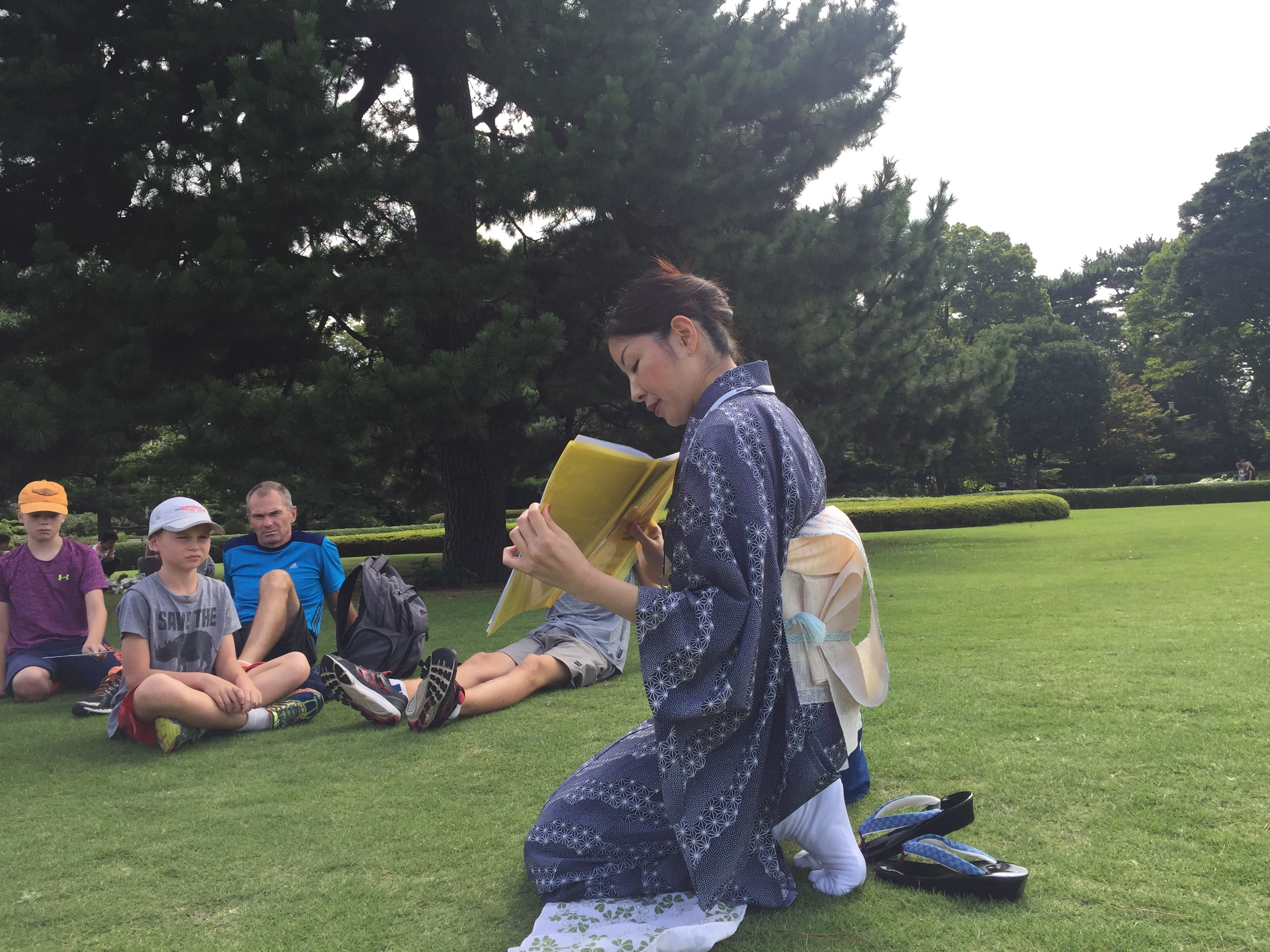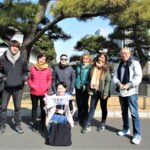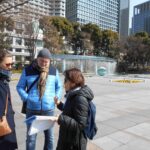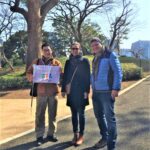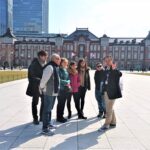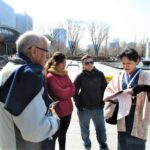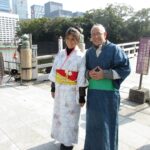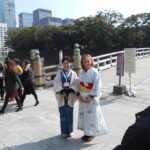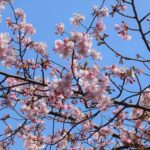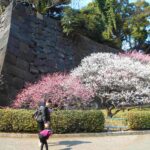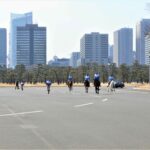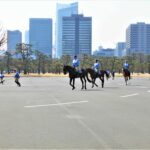Thank you very much for joining our weekday tour to the Imperial Palace East Gardens on February 27th.
The tour welcomed 8 guests from Austria, Canada, Romania and Argentina. We divided us into two groups ― group A and B.
It was a slightly chilly day, but the sunshine of early spring made us warm and cheerful.
On the way to the Imperial Palace East Gardens, group A happened to meet 4 horses being trained along the large avenue. These 4 horses, owned by the Tokyo Metropolitan Police Department, were practicing leading a coach parade for the Ceremony of the Presentation of Credentials (see a report below on January 18).
Generally, horses are very coward, because they do not have any ‘weapons’ like horns or fangs. All they can do is to run away from enemies as quickly as possible. So, they always have to be sensitive to their circumstances ― sound, smell or movement of other horses.
Nevertheless, when a parade is held, horses are surrounded by a crowd of people. Some children might scream; some cars might honk a beep. Horses in the parade must be endurable and obedient to riders during the ceremony. That is why they sometimes have to practice trotting through heavy traffic, in order to be accustomed to noisy situation.


Until the beginning of 20th century had horses been essential and significant for Japanese way of life. They worked to cultivate a field and as means of transportation. Of course, in wartime, horses played an important role as military conveyance. Most of Japanese samurais and farmers had their own stables inside their mansions. In a cold region in Japan, people lived in a large house that included both living rooms and a stable, literally under one roof, sharing warm air from the kitchen together with a horse as a member of the family.
(Images from https://jafnavi.jp/, https://mayumail.exblog.jp/, https://www.linkedin.com/)
But time has changed. Since the end of Edo period (1860s), Japan might have put too much emphasis on economic profits instead of having refined and elegant mind. Caring horses needs a lot of time and labor costs compared with using automobiles, so horses have been replaced by cars and automatic cultivators. Now Japan has become one of the most economically developed countries in the world; in the process of development, however, Japanese people had to give up coexisting with horses in our daily life.
A horse coach makes us remember Japan’s good old days: the tranquil and cozy sound of the clatter of hoofs brings all the people a relaxing and peaceful moment.

(Image from Tokyo Station Facebook)
Good news!! You will be able to watch a coach column on March 6th!! It starts from Tokyo Station at 10 AM. It goes along Imperial Palace Avenue (Gyoko-Dori Avenue). Why don’t you come to Tokyo and enjoy watching a horse carriage together?
(Kayoko, illustrated by Yoko)

